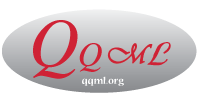Principal Research Scientist, Technology & Social Change Group, University of Washington, USA
______________________________________________________________________________________________________________________________________
Plenary Talk: Development and Access to Information: The Role of Libraries in Advancing the Sustainable Development Goals
These are not new questions. For decades, government agencies, practitioners, and researchers have applied information and communication technologies (ICTs) to solve community-level and national-level problems. Over the years, they have amassed extensive evidence on how information and communication resources can be leveraged across highly diverse contexts and a wide variety of domains (e.g., education, workforce development, gender equality, health care, and governance) while employing a range of technologies (e.g. community radio, mobile cooperatives, software applications, and telecenters). Yet despite the lessons learned, we are still far from achieving a truly inclusive information society. It would be a mistake to assume – in a world increasingly driven by interconnectedness, immediacy of information, and ubiquitous communications – that everyone can get online, just as there is no guarantee that broad access to so much information will ensure that it is used in ways that lead to more desirable social goals.
What is holding us back from building an inclusive information society that puts “the world onto a sustainable and resilient path”? Some of the challenges run deep, rooted in social and economic inequalities that surface as obstacles to basic connectivity, digital literacy, and technology affordability. Other emergent and rapidly shifting challenges include security and privacy issues, the explosion of mobile devices, and the disruption of traditional publishing and distribution systems. As our information ecosystem continues to change and evolve, the array of new challenges expands: lack of access among segments of the population, lack of connectivity in rural areas, monopolization of information access and curation, lack of mobile information literacy, and restrictions on freedom of expression, among other issues. In all countries, at all socioeconomic levels, the fight for the right to information is more pressing today than ever.
It is precisely in this complex information landscape that the United Nations agreed in 2015 on a new comprehensive framework: the 2030 Sustainable Development Agenda to end poverty, protect the planet, and ensure prosperity for all. To achieve these aims, the agenda outlines 17 Sustainable Development Goals (SDGs) in areas including poverty, health, agriculture, gender equality, innovation, and youth employment, with specific targets for each goal, and 169 targets in total. Within the SDGs framework, access to information and communication technologies underpins the achievement of the development goals. Eleven targets present access to information as a key tenet for achieving the targets’ aims. The agenda differs dramatically from its predecessor, the Millennium Development Goals, in that it takes a rights-based approach to sustainable development. It acknowledges that sustainable development is multifaceted and that all its constitutive components are interrelated. Therefore, to address development challenges, it requires addressing all types of rights – social, economic, cultural, political, civil, and informational.
A rights-based approach to information access recognizes that access is only one aspect of the human right to be informed; other dimensions (the ability to create, use, understand, and share) must also be considered before the right can be exercised. We argue that the right to information affects all other rights as well. Human rights are all interdependent and indivisible.
We can all agree that access to information, in all its dimensions, is a fundamental ingredient in the struggle to achieve more inclusive societies. However, we must not overlook the critical role of those who effectively translate that information into accessible knowledge and purposive use. Traditional media, civil society organizations, and public institutions such as libraries have performed this critical intermediary function by curating information, extending informational resources to communities in need, and offering social spaces for convening, learning, creating, and problem-solving in their communities. Such actors have been tremendously important in shaping the ways individuals interact with and apply information, while also helping communities leverage their knowledge and skills toward positive ends such as educational achievement and stronger civic participation. As such, libraries can act as agents of change to advance the SDGs.Keywords: public access, development, SDGs, access to information, data4development, public libraries, libdev
Brief Biography: Maria Garrido is a Principal Research Scientist at the Technology & Social Change Group of the University of Washington’s Information School. Experienced in conducting multi-country studies that span diverse geographic regions, much of her research focuses on the appropriation of information and communication technologies (ICTs) to catalyze social change, specifically in communities facing social, political, and economic challenges. Keenly interested in the role of ICTs in social movements, youth employability, and skill development, Maria has worked closely with civil society organizations, NGOs, public libraries, and development funders to conduct participatory research that results in actionable recommendations for policy and practice. Recent examples of her research include the role of Massive Open Online Courses (MOOCs) in advancing youth employability in Colombia, the Philippines, and South Africa; employability of migrant women and e-skills in the European Union; and youth movements, ICTs, and the struggle for democracy in Egypt’s Arab Spring. Maria is currently leading a multi-year research effort focusing on the role of access to information in advancing the Sustainable Development Goals (SDGs). She holds a Ph.D. in Communications from the University of Washington and a Masters in International Relations from the University of Chicago.

